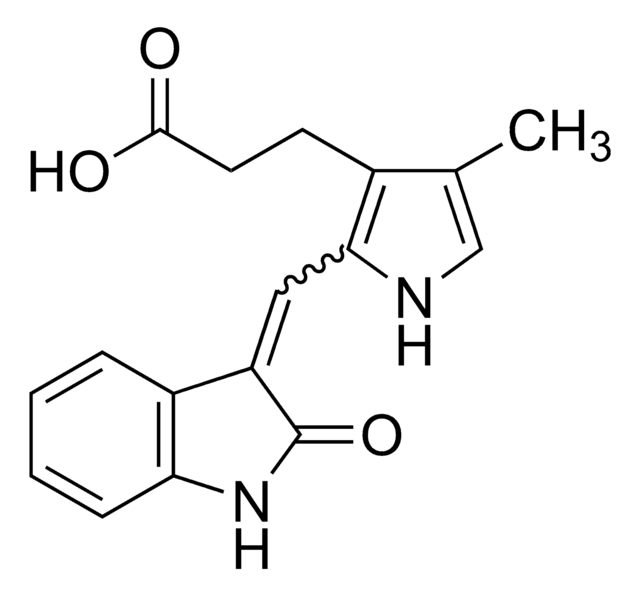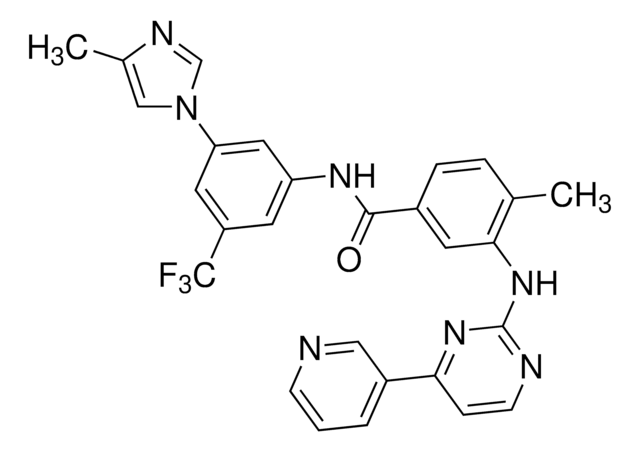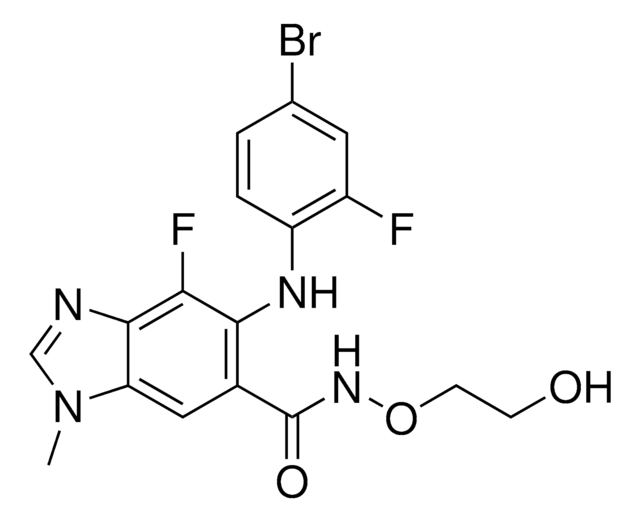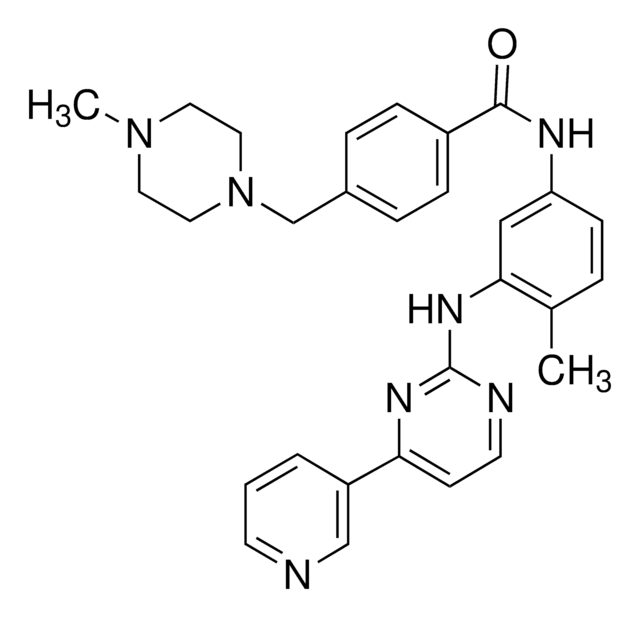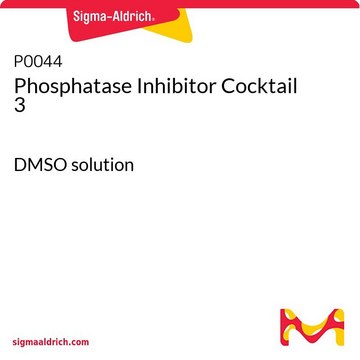G9420
GNF-2
≥98% (HPLC), solid
Synonym(s):
3-[6-[[4-(Trifluoromethoxy)phenyl]amino]-4-pyrimidinyl]benzamide
About This Item
Recommended Products
Quality Level
Assay
≥98% (HPLC)
form
solid
color
off-white
solubility
H2O: <2 mg/mL
DMSO: ≥5 mg/mL
storage temp.
2-8°C
SMILES string
NC(=O)c1cccc(c1)-c2cc(Nc3ccc(OC(F)(F)F)cc3)ncn2
InChI
1S/C18H13F3N4O2/c19-18(20,21)27-14-6-4-13(5-7-14)25-16-9-15(23-10-24-16)11-2-1-3-12(8-11)17(22)26/h1-10H,(H2,22,26)(H,23,24,25)
InChI key
WEVYNIUIFUYDGI-UHFFFAOYSA-N
Biochem/physiol Actions
Features and Benefits
Storage Class Code
11 - Combustible Solids
WGK
WGK 3
Personal Protective Equipment
Choose from one of the most recent versions:
Certificates of Analysis (COA)
Don't see the Right Version?
If you require a particular version, you can look up a specific certificate by the Lot or Batch number.
Already Own This Product?
Find documentation for the products that you have recently purchased in the Document Library.
Articles
Sigma-Aldrich offers many products related to Abl for your research needs.
Related Content
Discover Bioactive Small Molecules for Kinase Phosphatase Biology
Our team of scientists has experience in all areas of research including Life Science, Material Science, Chemical Synthesis, Chromatography, Analytical and many others.
Contact Technical Service
